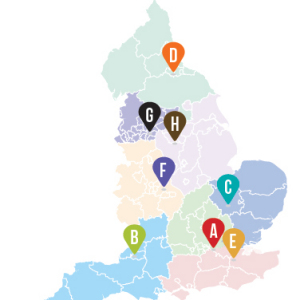The new education select committee is to launch an inquiry into the role of regional schools commissioners (RSCs).
Announced this afternoon, the committee, chaired by Neil Carmichael, wants written evidence about the role of the eight RSCs in the autumn, including about what impact they have had in their first year and whether there are enough to fulfil their “expanding role”.
The scope of the inquiry will cover:
– What the RSCs role currently is, how this might change as the academies landscape evolves, and what the role of RSCs should be
– Whether there are sufficient RSCs and headteacher boards to fulfil their expanding role, and whether they have adequate resources
– What evidence exists on the early operation of RSCs in terms of their impact, and how this impact should be measured
– What relationship RSCs should have with Ofsted, local authorities, the DfE, individual schools and local communities
– How RSCs should be held to account in their role
RSCs are part of the government’s “middle tier” of accountability for academies, including free schools. Described by some as mini secretaries of state, RSCs took up their positions in September and each represent a region of England – as shown below in the map.
 They are paid between £115,000 and £140,000 and staffing costs in each of their offices are up to £260,000.
They are paid between £115,000 and £140,000 and staffing costs in each of their offices are up to £260,000.
Each RSC is supported by a headteacher board, of which members are elected, appointed or co-opted.
For an explainer about the RSCs and their role, click here.
Last week, Schools Week reported that Lancashire and West Yorkshire RSC Paul Smith had resigned. The Department for Education has already advertised for his replacement.
Schools Week reported in December that RSCs will be judged by how many schools in their area convert to academy status, as part of eight key performance indicators.
Schools Week profiled each RSC last year. To read our supplement about each of them, click here.
The select committee wants evidence by September 9. Submissions can be made here.







Your thoughts